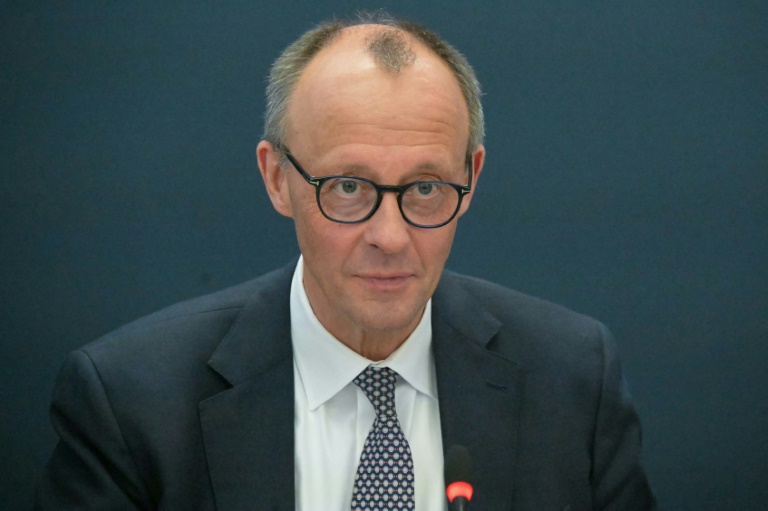Germany’s conservatives under chancellor-in-waiting Friedrich Merz on Monday announced their cabinet ministers, including an outspoken Ukraine backer as foreign minister, before they are set to take power next week.
Merz’s CDU/CSU alliance, winners of February 23 general elections, named Johann Wadephul, a 62-year-old former soldier and trained lawyer, as the new top diplomat for Europe’s biggest economy.
Wadephul is expected to play a key role in a new national security council, together with the current and likely future defence minister, Boris Pistorius of the Social Democrats (SPD), to push Berlin’s interests in the EU and on the international stage.
Wadephul of the CDU has long been a close confidant and key foreign policy adviser to Merz at a time Europe faces geopolitical upheaval as US President Donald Trump has cast doubt on the future strength of the NATO alliance.
A supporter of strengthened European defence capabilities, Wadephul recently told the Frankfurter Allgemeine Zeitung daily that Russian President Vladimir Putin “is disruptive, he is aggressive, he is hungry”.
The CDU/CSU alliance has sealed a coalition deal with the SPD of outgoing Chancellor Olaf Scholz, whose three-party coalition collapsed last November, with the new government set to take office on May 6.
Senior party members from the CDU were set to sign off on the coalition deal later Monday, and SPD party members were expected to do so later this week.
The two parties had already agreed which party would take which ministry, with the CDU and its Bavarian allies the CSU to hold 10 positions between them.
The SPD will take seven, with its co-leader Lars Klingbeil expected to become vice chancellor and finance minister, tasked with rebooting an economy mired in recession for the past two years.
The post of economy and energy minister will go to the CDU’s Katherina Reiche, 51, who has recently been working an executive in the energy sector, her party said.
– Tighter borders –
Alexander Dobrindt, 54, parliamentary leader of the CSU, will be the new interior minister, tasked with driving a crackdown on irregular immigration, party sources told AFP.
Merz has vowed to tighten German borders, in part as a response to the rise of the anti-immigration Alternative for Germany (AfD) party, which came second in the vote and has topped some recent polls.
Rumours had been swirling for some time that Wadephul was in line for top diplomat as he had held meetings with the foreign ministers of Britain, France and Poland in recent weeks.
His designation as foreign minister, the first time the conservatives have held the post in almost 60 years, speaks to Merz’s stated plan for more unity in the government on foreign policy issues.
It comes after Annalena Baerbock, Germany’s outgoing foreign minister from the Greens, often publicly contradicted Scholz, especially on defence issues.
Merz is planning to create a national security council in the chancellery to better coordinate all issues that touch on foreign, defence and development policy.
A spending “bazooka” worth many hundreds of billions of euros was passed by the outgoing parliament to build up the armed forces as well as Germany’s infrastructure.
– Space ministry –
Karsten Wildberger, currently chief executive of the Ceconomy group which owns German digital retailers Saturn and Mediamarkt, will lead a new ministry for digitalisation and modernisation.
The CSU will run a new space ministry with the target of putting a German on the moon, strengthening the space industry and developing sovereign satellite systems.
It will be led by veteran conservative Dorothee Baer, sources close to a meeting of the CSU leadership told AFP.
The list of CDU posts includes more women than expected after coalition negotiations were led by a heavily male-dominated group.
Karin Prien, Nina Warken and Christiane Schenderlein will take the education, health and sport ministries respectively.
Thorsten Frei, a key CDU figure in the coalition negotiations, will be the head of the chancellery, while the transport portfolio will go to Patrick Schnieder.
Jens Spahn, the CDU’s former health minister, will be the head of the party’s parliamentary group.
The CSU’s Alois Rainer will be the new agriculture minster, party sources said.
fec/fz/phz
